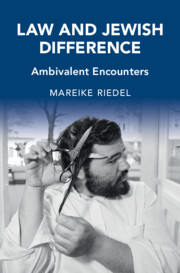
- Cited by 1
-
Cited byCrossref Citations
This Book has been cited by the following publications. This list is generated based on data provided by Crossref.
Riedel, Mareike and Rau, Vanessa 2025. Religion and race: the need for an intersectional approach. Identities, p. 1.
- Publisher:
- Cambridge University Press
- Online publication date:
- November 2024
- Print publication year:
- 2024
- Online ISBN:
- 9781009091213
- Subjects:
- Judaism, Socio-Legal Studies, Law, Religion


